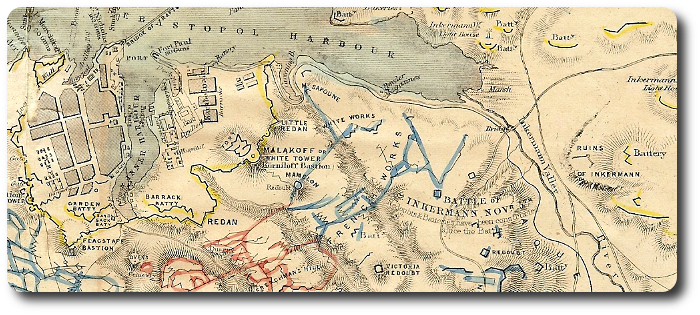Topic: Military Theory

Movement and Ground (1855)
Skill in measuring distances is an important branch in military education.
From: Field Service; The Sydney Morning Herald, Sydney, Australia, 11 May 1855
(From the Household Words)
A few hints for the transportation of troops by rail are drawn from the instructions issued by the Minster of War in France. One is to the effect that horses should be embarks in the train before feeding, and fed on the journey, which keeps them quieter. But with regard to the railway, it is found that when infantry travel by rail the expense is double that of a march; that of cavalry, six times; and that of artillery, fifteen times; for which reasons, as well as on account of the importance of keeping up the habit of long marches, the railway is resorted to only on particular emergencies.
Skill in measuring distances is an important branch in military education. The use of instruments, and certain mathematical rules, must, of course, be learnt; but without them, distance can be accurately reckoned by sound. The flash of a gun is seen before the report is heard; multiply every second of that interval by three hundred and eight yards, every beat of the pulse in health by three hundred and four yards, and you get an exact distance of yourself from the gun. There is "the peak of the cap" method; which is said to be good for distances under a hundred yards, on level ground. Suppose you want to measure the distance of an inaccessible point, say on the opposite side of a river, draw your cap over your eyes, till the peak just meets the point; then turn smoothly on your heels, keep your head stiff, and notice when the peak covers some other point which is accessible. You can then measure on the ground between yourself and that accessible point by pacing. The distance will of course be the same as that to the inaccessible point.
But the best, or rather the most useful of all calculators, is the eye itself; which, after repeated trials, will register distances with great accuracy. The value of musketry and artillery in action depends on an officer's judgment in this respect. His sketch of the field for the use of the general is executed with the eye, the pocket compass, and by pacing. An officer on service had better be without his watch than a compass. Yet mother-wit is all in all. When Marlborough was sent on a mission to Charles the Twelfth, he noticed a pair of compasses lying on the map, with the legs pointing toward St. Petersburg, and instantly concluded that the King's thoughts turned that way, which was the case. Major General Arthur Wellesley coming to a river which his guides insisted was impassible, was rather puzzled, his rear being exposed to an overwhelming force of the enemy's cavalry; but seeing a few cottages on its banks, he took what seemed the desperate resolution of making for the river, discovered a ford, and won the battle of Assaye; and all from guessing that men did not build villages on opposite sides of a stream without some means of communication between them.

